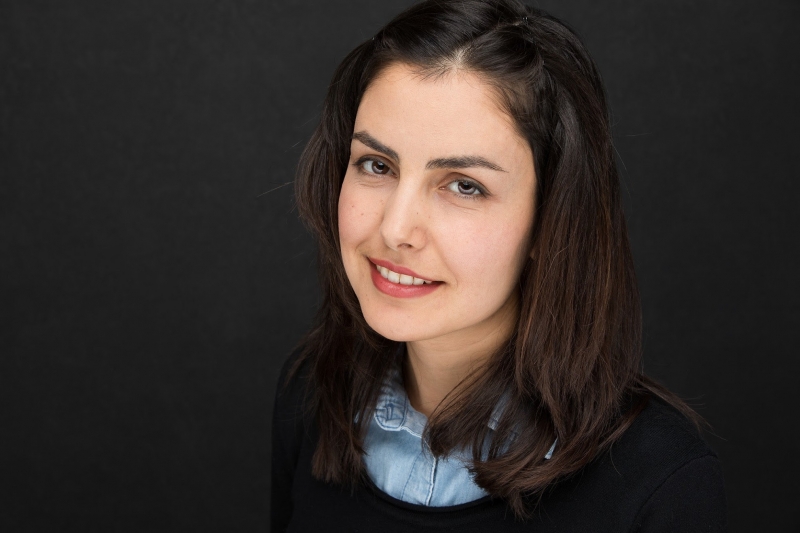A doctoral graduate of the Cullen College of Engineering's Mechanical Engineering program has taken home another award for a poster presentation, her second while affiliated with the college.
Sara Pouladi, a postdoctoral researcher, earned the honor at the 48th IEEE Photovoltaic Specialists Virtual Conference, held in June 2021. Her poster, “Effect of Low-Angle Grain-Boundary Passivation in Flexible Single-Crystal-Like Thin-Film GaAs Solar Cells,” was recognized as the best of the conference. She also won a similar award in 2017, at the 44th PVSC.
“It was a great pleasure and honor for me to be selected for the best poster award for the second time in the worldwide, prestigious IEEE Photovoltaic Specialists Conference,” she said.
Pouladi's poster described the work she is doing as part of the research group of Jae-Hyun Ryou, Ph.D., an associate professor in the Mechanical Engineering Department of the Cullen College of Engineering. She has been researching improvements in inexpensive flexible solar cells as of late.
“We recently reported significant advances in the science and technology of photovoltaic energy harvesting – solar cells – by introducing a new type of material platform,” she said. “This single-crystal-like gallium arsenside (GaAs) thin film on metal tape offers the potential for high efficiency, low cost, high-throughput manufacturing, and mechanical flexibility for GaAs solar cell.”
Pouladi added, “In the current work presented at PVSC 2021, we reported a big boost by a factor greater than two – from 6.1 percent to 13.5 percent – for this newly developed flexible solar cell by effective passivation of major defects existing in the new type of material. The improvement mechanism was systematically investigated by both modeling and experimental materials characterizations. We suggested a viable technological direction to achieve conversion efficiency greater than 20 percent from this materials platform. In summary, our work proposes a critical solution for an existing challenge in PV technology. Our study lays a solid technical foundation for flexible single-crystal-like GaAs solar cells to become a major PV materials technology.”
Ryou also served as the advisor for Pouladi's doctorate, which she earned in January 2020. She has stayed on at the Cullen College of Engineering as a postdoc since then. In addition to her poster awards, she earned the 2018 Albert Thumann in the Foundation of the Association of Energy Engineers (FAEE).
Pouladi is looking to continue her research work in the future, whether that's in an academia setting or an industry job.
“My research field is on semiconductor materials and devices for photonic, electronic and energy applications, such as photovoltaic solar cells (SCs), field-effect transistors (FETs), high-electron mobility transistors (HEMTs), light-emitting diodes (LEDs), and piezoelectric generators (PEGs) and sensors with a special focus on employing less harmful and more environmental-friendly materials and fabrication processes for these devices,” she said. “I'm open to continuing my research in this high-tech field through industry or academia, which will greatly benefit our plans for a clean Earth by commercializing and reducing the cost of clean energy in near future.”
